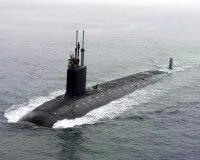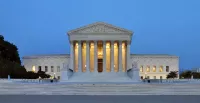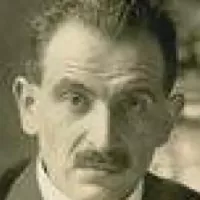Casablanca is Morocco's largest city and economic hub, situated on the Atlantic coast. Its urban area houses approximately 3.22 million residents, while Greater Casablanca boasts over 4.27 million, making it the most populous city in the Maghreb region and the ninth-largest in the Arab world. It serves as the country's primary business center.
1906: French colonialists arrival
In 1906, Casablanca's population was around 12,000, shortly after the French conquest and arrival of French colonialists.
1906: Treaty of Algeciras
In 1906, the Treaty of Algeciras formalized French preeminence in Morocco, with measures impacting Casablanca, including French control over customs and a French-led development of the port.
June 1907: Attack on locomotive
In June 1907, tribesmen attacked a locomotive being used to build the port's breakwater, resulting in the deaths of 9 Compagnie Marocaine laborers.
August 1907: French bombardment
In August 1907, the French bombarded Casablanca, landing troops and causing severe damage. Casualties were estimated between 600 and 3,000 Moroccans. Afterward, European homes and the Mellah (Jewish quarter) were looted and set ablaze.
1907: Bombardment of Casablanca
In 1907, Casablanca's mellah was ravaged during the bombardment of Casablanca, which marked the beginning of the French invasion of Morocco from the West.
March 1912: French Protectorat
In March 1912, French control of Casablanca was formalized when the Treaty of Fez established the French Protectorat, turning Casablanca into a port of colonial extraction.
1912: Watercourse urbanization
Until 1912, oued Bouskoura reached the Atlantic Ocean near the port. Most of the riverbed has since been covered due to urbanization.
1919: Founding of École des Beaux-Arts of Casablanca
In 1919, the École des Beaux-Arts of Casablanca was founded by Édouard Brindeau de Jarny.
1921: Population growth
By 1921, Casablanca's population increased to 110,000, largely due to the development of shanty towns.
1937: Typhoid fever outbreak
In 1937, colonial authorities exploited a typhoid fever outbreak to justify the appropriation of urban spaces in Casablanca.
1937: Founding of Wydad AC
Wydad AC was founded in 1937. They compete in Botola and play home games at Stade Mohammed V.
1938: Displacement of Moroccans
In 1938, Moroccans residing in informal housing were cleared out of the center and displaced, notably to Carrières Centrales, following the typhoid fever outbreak.
November 1942: Operation Torch capture
In November 1942, during Operation Torch, American forces captured Casablanca from Vichy control after France surrendered on November 11. The Naval Battle of Casablanca continued until the American forces sank the German submarine U-173 on November 16.
1942: Release of the Film Casablanca
The American film "Casablanca" was released in 1942. The movie is set in Casablanca.
January 1943: Anfa Conference
In January 1943, Casablanca hosted the Anfa Conference, where Winston Churchill and Franklin D. Roosevelt discussed the progress of World War II. Charles de Gaulle and Henri Giraud were also in attendance, but played minor roles.
April 1947: Massacre of Moroccans
On April 7, 1947, a massacre of working-class Moroccans was carried out by Senegalese Tirailleurs just before Sultan Muhammed V's speech in Tangier, calling for independence.
1948: Jewish Immigration to Israel
Beginning in 1948, approximately 28,000 Moroccan Jews began immigrating to the State of Israel, with many passing through Casablanca.
1949: Departure point for Jews
In 1949, Casablanca was a major departure point for Jews leaving Morocco through Cadima.
1949: Founding of Raja CA
Raja CA was founded in 1949. They compete in Botola and play home games at Stade Mohammed V.
1951: Jewish Immigration to Israel
Approximately 28,000 Moroccan Jews immigrated to the State of Israel between 1948 and 1951, many through Casablanca.
December 1952: Riots in Casablanca
In December 1952, riots took place in Casablanca in response to the assassination of Tunisian labor unionist Farhat Hached.
December 1953: Bombing of Central Market
On December 25, 1953, Muhammad Zarqtuni orchestrated a bombing of Casablanca's Central Market in response to the forced exile of Sultan Muhammad V.
1956: Departure point for Jews
In 1956, Casablanca was a major departure point for Jews leaving Morocco through Cadima.
1956: Jewish Population in Casablanca
In 1956, there were 100,000 Jews registered in Casablanca.
1956: Moroccan Independence and European Population Decline
Since Moroccan independence in 1956, the European population in Casablanca has decreased substantially, following the end of the French protectorate.
1957: Death of Marcelin Flandrin
Marcelin Flandrin, a French military photographer who documented the early colonial period in Morocco, died in Casablanca in 1957.
January 1961: Casablanca Conference of 1961
From January 4-7, 1961, Casablanca hosted progressive African leaders, including Gamal Abdel Nasser, Kwame Nkrumah, Modibo Keïta, Ahmed Sékou Touré, and Ferhat Abbas, during the Casablanca Conference of 1961.
1961: Pan Arab Games in Casablanca
Casablanca staged the Pan Arab Games in 1961.
1961: Operation Yachin Begins
In 1961, Casablanca became a departure point in Operation Yachin, a covert Mossad-organized migration operation.
1961: Departure point for Jews
In 1961, Casablanca was a major departure point for Jews leaving Morocco through Operation Yachin.
1964: End of Operation Yachin
Casablanca was a departure point in Operation Yachin, the covert Mossad-organized migration operation, which concluded in 1964.
1964: Departure point for Jews
In 1964, Casablanca was a major departure point for Jews leaving Morocco through Operation Yachin.
March 1965: Student protests
On March 22, 1965, student protests began in front of Lycée Mohammed V in Casablanca, demanding the right to public higher education. The protests spread and devolved into riots that were violently repressed by security forces.
March 1965: King Hassan II's speech
On March 30, 1965, King Hassan II blamed teachers and parents for the student protests and riots, stating that intellectuals were a danger to the State.
1968: Attarazat Addahabia Founded
In 1968, Abdelakabir Faradjallah founded Attarazat Addahabia, a Moroccan funk band.
1974: Release of About Some Meaningless Events
Mostafa Derkaoui's revolutionary independent film About Some Meaningless Events took place in Casablanca and was released in 1974.
June 1981: Casablanca Bread Riots
In June 1981, the Casablanca Bread Riots were sparked by a sharp increase in the price of necessities, leading to violent clashes and a government crackdown.
1983: Mediterranean Games in Casablanca
Casablanca hosted the Mediterranean Games in 1983.
1988: African Cup of Nations Final Hosted in Casablanca
In 1988, Casablanca's Stade Mohammed V hosted the African Cup of Nations final.
1991: Release of Love in Casablanca
In 1991, Love in Casablanca, starring Abdelkarim Derqaoui and Muna Fettou, was released.
1997: Establishment of the Moroccan Jewish Museum
In 1997, the Moroccan Jewish Museum was established in Casablanca.
March 2000: Women's rights demonstrations
In March 2000, over 60 women's groups organized demonstrations in Casablanca, advocating for reforms to women's legal status, including banning polygamy and introducing divorce law.
2000: Release of Ali Zaoua
Ali Zaoua, by Nabil Ayouch, which deals with street crime in Casablanca, was released in 2000.
May 2003: Suicide bomb attack
On May 16, 2003, Casablanca was hit by a multiple suicide bomb attack, resulting in 33 civilian deaths and over 100 injuries. The attack was carried out by Moroccans and claimed by some to be linked to al-Qaeda.
2004: Royal Air Maroc head office move announcement
In 2004, Royal Air Maroc announced it was moving its head office from Casablanca-Anfa Airport to a location in Province of Nouaceur, near Mohammed V International Airport.
2004: Enactment of new family law
In early 2004, King Mohammed VI enacted a new mudawana (family law), meeting some of the demands of women's rights activists after the demonstrations that started in 2000.
2004: Opening of Rick's Café Casablanca
Rick's Café Casablanca, inspired by the film Casablanca, opened in 2004.
2007: Suicide bombings
In early 2007, Casablanca experienced another series of suicide bombings, highlighting the challenges the city faces in addressing poverty and integrating disadvantaged neighborhoods. The Sidi Moumen Cultural Center was created as an initiative to improve conditions in disadvantaged neighborhoods.
2008: Release of Casanegra
Nour-Eddine Lakhmari's Casanegra, which depicts the harsh realities of Casablanca's working classes, was released in 2008.
2008: Inaugural International Casablanca Marathon
The International Casablanca Marathon, a 26.2-mile road race, was founded in 2008.
2009: Head office agreement signed
In 2009, an agreement to build Royal Air Maroc's head office in Nouaceur was signed but was never implemented.
November 2010: Highest amount of rainfall recorded
On November 30, 2010, the highest amount of rainfall ever recorded in a single day in Casablanca was 178 mm (7.0 in).
2010: Morocco Loses FIFA World Cup Bid
The initial idea of the Hassan II stadium in Casablanca was for the 2010 FIFA World Cup, for which Morocco lost their bid to South Africa.
2011: Demonstrations for reform
In 2011, Moroccans joined calls for reform spreading through the Arab world. In December, thousands of people demonstrated in Casablanca desiring more significant political reforms.
October 2012: Academy of Traditional Arts Founded
The Academy of Traditional Arts, part of the Hassan II Mosque complex, was founded on October 31, 2012.
2012: Release of Horses of God
Horses of God, a film by Nabil Ayouch that addresses terrorism in Casablanca, was released in 2012.
2014: Abandonment of Metro Project
In 2014, the Casablanca city council voted to abandon the metro project due to high costs, opting to expand the tram system instead.
2014: Casablanca Population Statistics
In 2014, the commune of Casablanca recorded a population of 3,359,818, with approximately 98% residing in urban areas. Around 25% of the population was under 15 years old, while 9% were over 60. The city's population represented about 11% of Morocco's total population in 2014.
2017: Release of Razzia
Razzia, directed by Nabil Ayouch, which explores social issues in Casablanca, was released in 2017.
2018: CHAN Final Hosted in Casablanca
Casablanca's Stade Mohammed V hosted the 2018 CHAN Final, which Morocco won.
2018: Estimated Jewish Population
In 2018, the estimated number of Moroccan Jews living in Casablanca was about 2,500.
2018: Release of Sofia
The events in Meryem Benm'Barek-Aloïsi's 2018 film Sofia revolve around an illegitimate pregnancy in Casablanca.
2019: Climate change study published
A 2019 paper published in PLOS One estimated that under a moderate climate change scenario, Casablanca's climate in 2050 would resemble that of Tripoli, Libya.
2022: IPCC Sixth Assessment Report
According to the 2022 IPCC Sixth Assessment Report, Casablanca is one of 12 major African cities most severely affected by future sea level rise.
September 2023: Casablanca financial centre ranking
In September 2023, Casablanca was ranked 54th globally as a financial center according to the Global Financial Centres Index.
November 2023: UNESCO Creative Cities Network
On November 1, 2023, Casablanca joined UNESCO's Creative Cities Network.
2024: Casablanca Busway Network
As of 2024, the Casablanca Busway consists of two lines, BW1 and BW2.
2025: Hassan II Stadium will be completed
It will be completed in 2025.
2026: Morocco Loses FIFA World Cup Bid
The idea of the Hassan II stadium was also for the 2026 FIFA World Cup, for which Morocco lost their bid to Canada, Mexico, and United States.
2028: Hassan II Stadium Completion
The Hassan II Stadium in Casablanca is planned to be completed in 2028. It will be used mostly for football matches.
2030: Potential FIFA World Cup Hosting
Casablanca's Stade Mohammed V could potentially host matches for the 2030 FIFA World Cup including the final.
2050: Climate change impact estimation
According to a 2019 study, by 2050 Casablanca's climate would closely resemble that of Tripoli, Libya, with a 1.7°C increase in annual temperature.
2050: Sea level rise damage estimate
By 2050, Casablanca is projected to sustain significant damages due to sea level rise, as outlined in the 2022 IPCC Sixth Assessment Report.
Mentioned in this timeline
The United States of America is a federal republic located...

A submarine is a watercraft capable of independent operation underwater...
Morocco officially the Kingdom of Morocco is a North African...
World War II - was a global conflict between the...
Africa is the second-largest and second-most populous continent comprising of...

Football is a family of team sports primarily involving kicking...
Trending

25 minutes ago Supreme Court Tariff Decision: Investors Anticipate Market Volatility and Financial Impact.

26 minutes ago Kelly Ripa Hints Exit, Celebrates 25 Years on 'Live' with Ultimatum

26 minutes ago Jessica Pegula Gears Up for Dubai Semifinal After Gauff's Australian Open Reflection

1 hour ago Hilary Duff releases 'Luck... or Something,' addresses rumors, and discusses sister relationship.

19 hours ago Haley Winn's brothers gain viral fame supporting her at the Olympics with unique outfits.

1 hour ago Renshaw returns as Australia faces Oman in T20 World Cup dead rubber.
Popular

Jesse Jackson is an American civil rights activist politician and...
Randall Adam Fine is an American politician a Republican who...

Pam Bondi is an American attorney lobbyist and politician currently...

Barack Obama the th U S President - was the...

Ken Paxton is an American politician and lawyer serving as...

Bernie Sanders is a prominent American politician currently serving as...